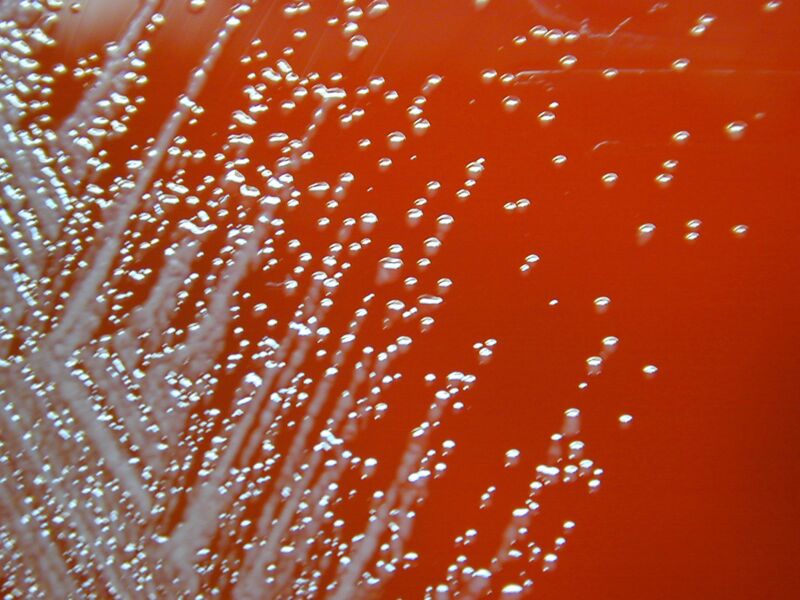
Enlarge / Burkholderia pseudomallei grown on sheep blood agar for 24 hours. B. pseudomallei is a Gram-negative aerobic bacteria, and it's the causative agent of melioidosis. (credit: Getty | CDC/Courtesy of Larry Stauffer, Oregon State Public Health Laboratory)
The fourth person affected by a bacterial outbreak linked to imported aromatherapy room sprays sold at Walmart last year occurred in a previously healthy 5-year-old boy in Georgia, who died of the infection. That's according to new information presented Tuesday at the International Conference on Emerging Infectious Diseases (ICEID), hosted by the Centers for Disease Control and Prevention in Atlanta.
The tragic new details of the boy's cases—presented by epidemiologist Jessica Pavlick of the Georgia Department of Public Health—have newfound significance for the US. In the year since the boy's death, the tropical soil bacterium behind his deadly infection has been found in environmental samples in southern Mississippi. The bacterium—Burkholderia pseudomallei—is now considered endemic to the Gulf Coast region, creating an ever-present threat to people in the area.
Tragic infection
For years, CDC researchers have suspected that B. pseudomallei could already be lurking in soil and water in the continental US, rather than being brought in via imported animals and products (like the room sprays), as well as travelers and migrants. In recent years, the US has averaged about 12 cases of B. pseudomallei infection, which causes a disease called melioidosis.
No comments:
Post a Comment